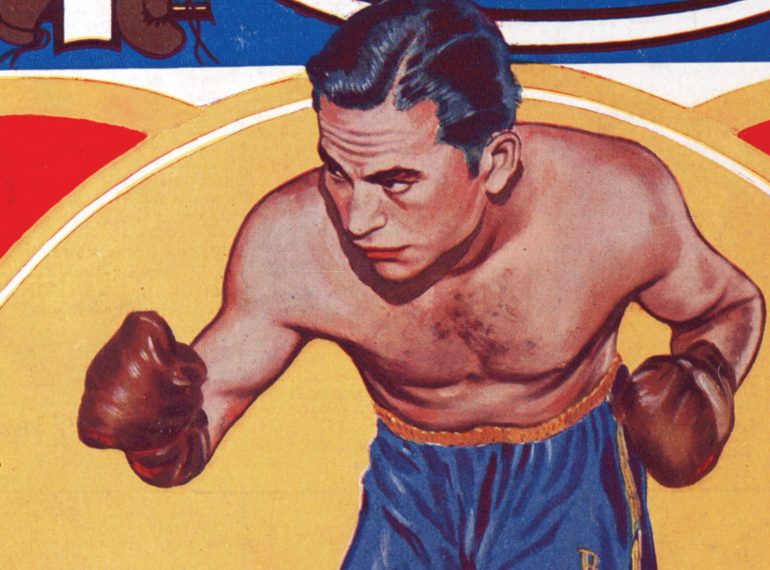Born on this day: Barney Ross

Fighter, gangster, soldier, hero. A multiple division champion, an unstoppable fighting machine, and the battling pride of his country and his people. Barney Ross was born on a day like today, 113 years ago.
Ross was born Dov-Ber Rosofsky on December 23, 1909 in New York City to Isidore Rosofsky, a Jewish religious scholar who moved had migrated from Poland, and Sarah Epstein. His father became a rabbi but also had a grocery store in which he was tragically shot to death during a robbery attempt.
With his mother beset by grief and his younger siblings being cared for by other families, Ross took to the streets and soon enough was part of the then-vibrant gang scene in the city, becoming a friend and associate of Jack Ruby and briefly working for Al Capone, among other endeavors.
It was Ruby who convinced him to take up boxing, and soon enough he was winning amateur tournaments all over the country using his new assumed name, choosing a more anglicized name in order to blend in and avoid being discriminated, a common situation at the time for fighters of every provenance.
He made his pro debut in 1929, and rose swiftly in the rankings, defeating contenders such as Battling Batalino and Frankie Petrolle. His big break came in June, 1933, when he faced Tony Canzoneri in the first of their two-fight rivalry, resulting in Ross picking up the Ring lightweight championship and laying claim to a junior welterweight title in the same fight.
Ross would defend his Ring belt against Canzoneri in November, but then focused his career on the junior welterweight division, which was then recognized only by the National Boxing Association (NBA), defending that belt on half a dozen occasions before turning his attention to the welterweight division, where he finally earned his second Ring belt defeating Jimmy McLarnin in what was deemed the Fight of the Year 1934.
He then lost and regained his belt against McLarnin in a memorable trilogy spanning exactly one year, and continued his march with a string of non-title bouts against top opposition, defending his belt only twice in the next two years before surrendering to Henry Armstrong in what proved to be Ross’ swan song in 1938.
Ross was known for his relentless fighting style in the ring, but fighting through the rise of Hitler’s Nazi Germany made him also a beacon for his fellow Jewish people, who saw in him an example of their vow to never surrender. Ross was never stopped in his 81-fight career, finishing with a record of 74-4-3 and 22 stoppage wins.
After being drafted to fight in World War II, Ross was awarded numerous medals and distinctions due to his courage in battle. He was inducted into the International Hall of Fame in the inaugural class of 1990. He died in Chicago of throat cancer in 1967 at the age of 57.
Diego M. Morilla has written for The Ring since 2013. He has also written for HBO.com, ESPN.com and many other magazines, websites, newspapers and outlets since 1993. He is a full member of the Boxing Writers Association of America and an elector for the International Boxing Hall of Fame. He has won two first-place awards in the BWAA’s annual writing contest, and he is the moderator of The Ring’s Women’s Ratings Panel. He served as copy editor for the second era of The Ring en Español (2018-2020) and is currently a writer and editor for RingTV.com.














